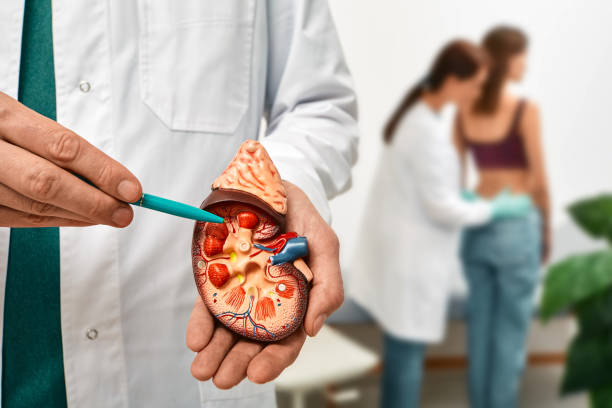
Treatment of Chronic Kidney Disease
05/30/2023Chronic kidney disease (CKD) is a condition in which the kidneys suffer progressive and irreversible damage over time. The kidneys perform several essential functions in the body, including filtering the blood to remove waste products and excess fluids, regulating electrolyte balance, and producing hormones important for bone health and controlling blood pressure.
In chronic kidney disease, the kidneys gradually lose their ability to perform these functions properly. The condition is characterized by a progressive decrease in the glomerular filtration rate (GFR), which is a measure of the kidneys' ability to filter blood. GFR is measured in stages, from 1 to 5, with stage 1 being the mildest and stage 5 being the most severe, also known as end-stage renal disease or kidney failure.
The main causes of chronic kidney disease include diabetes mellitus, high blood pressure, polycystic kidney disease, glomerulonephritis, chronic urinary obstruction, among others. The progression of chronic kidney disease can lead to serious complications, such as the need for dialysis or kidney transplantation, as well as increasing the risk of cardiovascular disease.
The symptoms of chronic kidney disease may not be noticeable in the early stages, but as the condition progresses, symptoms such as fatigue, swelling in the legs and ankles, increased urinary frequency, foamy urine, high blood pressure, anemia, persistent itching, loss of appetite and changes in sleep.
The diagnosis of chronic kidney disease is made through blood and urine tests, which help to evaluate kidney function and identify abnormalities in the levels of creatinine, urea and other markers. Early detection and adequate treatment of chronic kidney disease are essential to slow its progression and reduce the risk of complications.
Treatment of chronic kidney disease involves a multidisciplinary approach, including lifestyle modifications, blood pressure and diabetes control, dietary restriction, medication use and, in advanced cases, dialysis or kidney transplantation. The aim of treatment is to slow the progression of the disease, control symptoms and maintain the best possible quality of life for the patient.

